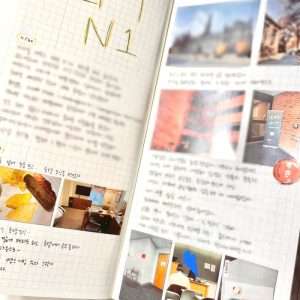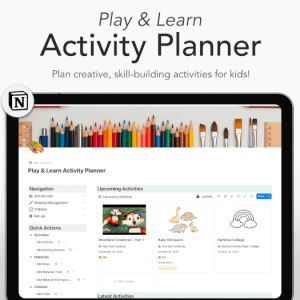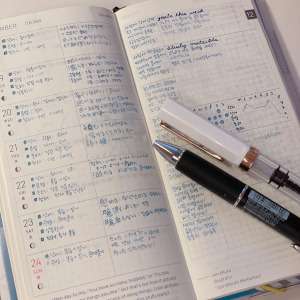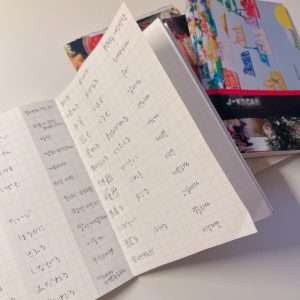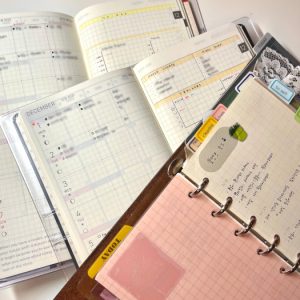JLPT Study Guide: Last-Minute Preparation Tips for Success
The Japanese-Language Proficiency Test (JLPT) is just around the corner—scheduled for Sunday, December 1, 2024 (AATJ). I’m also taking the test, and with only a few weeks left, I’ve learned to stop spreading myself thin and zero in on what actually helps. This guide shares my personal strategies for making the most of the final month.
1. Simulate the Test with JLPT Practice Exams
In the final month before the exam, taking full-length JLPT practice exams becomes essential. These exams not only mimic the real test environment but also help you build the stamina needed for the entire duration.
- Create an Authentic Test Setting: Dedicate a specific space for practice, free from distractions. Ensure you set a timer for your specific JLPT level and work through the entire exam without interruptions. This routine prepares you for the pressure and time constraints of the real test.
- Utilize Official Practice Exams: Use official JLPT practice tests or reliable mock exams that closely resemble the actual content. These materials offer insight into the style and difficulty level, so you know what to expect.
- Score Yourself Realistically: After completing the practice test, score it as per the JLPT’s criteria. Understanding where you currently stand will guide your next steps.
- Review Time Management: Practice exams reveal not just your knowledge gaps but also your time management skills. Note if certain sections are consistently taking longer and adjust your pacing strategy accordingly.
Lately, I’ve been taking full-length practice exams under real test conditions, and they’ve been surprisingly effective. For me, the reading section consistently took the longest. I’ve been training myself to move faster through the first few questions so I wouldn’t run out of time on the final passages. They help me build both focus and endurance for the actual day.
2. Prioritize Targeted Reviews Based on Practice Exam Results
Once you’ve completed a JLPT practice exam, the next step is to dissect your performance. Reviewing results helps you focus on your weak areas for efficient last-minute study.
- Analyze Mistakes Deeply: Go through each incorrect answer and understand why you missed it. Identify whether it was due to vocabulary gaps, misunderstood grammar, or reading errors. I explain this more in my blog post on reviewing mistakes—this was one of the key ways I improved my grammar score in the final weeks before the JLPT. This post explains how reviewing mistakes can dramatically enhance your grammar skills.
- Organize Your Study Plan Around Weaknesses: Use your results to prioritize study sessions focused on these areas. If you frequently struggle with certain kanji or grammatical structures, dedicate time specifically to practice these points.
- Create a Mistake Journal: Document your common errors in a dedicated notebook or digital document. Summarize the rules or correct answers and review them frequently. This journal becomes a powerful resource in the final weeks, helping you target your reviews efficiently.
- Re-test Yourself: After targeted study, attempt similar practice questions to ensure you’ve improved. This reinforces your learning and builds confidence.
3. Speed Up Your Vocabulary Review
I still find the vocabulary load a bit overwhelming. To stay focused, I’ve started drilling only the high-frequency words that keep popping up in practice tests. Here are a few tips I’ve found especially effective:
- Focus on High-Frequency Words: Concentrate on words that are most commonly tested for your level. Lists of frequently appearing vocabulary for each JLPT level can be found online and provide a great starting point for review.
- Quick Flashcard Drills: Utilize digital flashcard apps like Anki or Quizlet to practice vocabulary. Aim for quick sessions where you can go through multiple words rapidly, reinforcing recognition through repetition.
- Learn Vocabulary in Context: For any word that feels unfamiliar, check how it’s used in sentences. Understanding the context helps with memorization and increases your ability to recognize words during the reading and listening sections.
- Repeat, Don’t Memorize Perfectly: During the last month, aim for repeated exposure rather than perfect memorization. The goal is to recognize as many words as possible in context, not to master every single term.
4. Go Over Previously Missed Questions and Notes
Reviewing past mistakes and notes helps solidify your understanding and ensures you don’t make the same errors twice.
- Compile a “Top Mistakes” List: Gather questions and concepts that you’ve struggled with during your prep into a single document or notebook. This will become your go-to review material in the final days.
- Self-Quiz Without Peeking at Explanations: Re-answer the questions in your “Top Mistakes” list without looking at notes. This tests whether you’ve internalized the corrections and boosts your confidence.
- Review Concise Notes: If you’ve kept notes on tricky grammar rules, kanji, or vocabulary, review them regularly. These notes should be clear and brief, so you can skim through them quickly before the exam.
I’ve been writing down or marking the questions I’ve missed more than a couple of times in my Hobonichi Weeks. It’s compact, so it’s easy to carry around and flip through whenever I get a chance.
5. Refine Your JLPT Listening Practice
The listening section often catches test-takers off guard. With a month left, refining your listening practice is crucial.
- Switch to Speaker Audio Practice: Since the JLPT is conducted with speakers, make sure to practice listening through speakers instead of headphones. This will help you adapt to the sound quality and volume you’ll experience on test day.
- Use Varied Listening Resources: Incorporate JLPT-specific listening exercises as well as general Japanese media like podcasts, news broadcasts, or YouTube videos. This broadens your exposure and helps you adjust to different speaking speeds and accents.
- Focus on Summarizing and Key Points: Practice understanding the main idea and key details rather than picking apart each word. This is similar to how JLPT listening questions are structured, where comprehending overall meaning is crucial.
- Re-listen and Analyze Errors: When you make a mistake during listening practice, go back and replay the section until you understand where you went wrong. This helps with both comprehension and retention.
I’ve practiced with a speaker from the start to match the JLPT setup, but even now, I sometimes miss words in mock tests. Echoey audio makes it surprisingly tricky to catch everything.
Quick Summary of Tips
To help you review efficiently, here’s a brief summary of the key strategies covered. Use this as a checklist to ensure you’re on track in your final month of preparation:
- Simulate the Test with Practice Exams
Mimic real exam conditions, use official tests, and review your timing. - Targeted Reviews
Analyze mistakes, focus on weak areas, create a mistake journal, and re-test yourself. - Speed Up Vocabulary Review
Prioritize high-frequency words, use flashcards, learn in context, and repeat often. - Review Missed Questions and Notes
Compile a “Top Mistakes” list, self-quiz, and review concise notes. - Refine Listening Practice
Practice with speakers, use varied resources, focus on main ideas, and re-listen to correct errors.

JLPT Practice Exams vs. Targeted Reviews: Finding the Balance
A common question is should I focus on practice exams or vocabulary before the JLPT? While both are essential, in the final month, practice exams should take priority. They help with time management, reinforce grammar and reading skills, and simulate real exam conditions.
However, vocabulary review is still crucial, especially for reading and listening sections. The best strategy is to integrate vocabulary learning into your mock test reviews—when you come across unfamiliar words in practice exams, write them down and review them daily. This approach keeps vocabulary relevant while maintaining a strong focus on test-taking skills.
Lately, my routine has been to do one mock test in the morning (timed, of course), review it right after, and then use a flashcard app throughout the day whenever I get a free moment to review vocabulary.
How to Make the Most of the Final Month
With only a few weeks left before the JLPT, many test-takers wonder: how can I improve my JLPT score in one month? The key is to focus on high-impact study methods that yield the best results in a short period. Instead of trying to cover everything, prioritize mock exams, reviewing past mistakes, and targeted vocabulary drills.
Simulating test conditions has been helping me a lot. It gets me as close as possible to the real environment, and I highly recommend it. Practicing under timed conditions improved my speed, accuracy, and ability to stay focused throughout the test. Reinforcing weak grammar and kanji areas also prevented avoidable mistakes. To maximize this time, active recall and timed practice sessions should take center stage. Reviewing mistakes and tracking recurring patterns in incorrect answers will refine your understanding and prevent repeating the same errors.
By using a JLPT study guide that balances test-taking strategies with vocabulary building, you’ll maximize retention and walk into the exam with confidence. The final month is about refinement, not overload, so focus on strategic study over passive review.
A Confident Last Push
These are the exact techniques I’m relying on in this final stretch before the JLPT. They’re helping me stay focused without burning out, and I’m hoping they’ll carry me through test day. I hope this post gives you some ideas or encouragement for your own prep as well.
For these final weeks, I recommend prioritizing practice exams, targeted reviews, and efficient vocabulary and listening practice. Every study session counts—so stay focused, learn from your mistakes, and don’t forget to rest when you need it.
📖 Must-Read JLPT Study Tips & Strategies
- JLPT Study Planner with Hobonichi: Timeline and Layout Tips
- What to Do After Passing JLPT N1: How I Found New Motivation
- JLPT Test Results: How I Passed JLPT N1
- What to Expect on JLPT Exam Day: My Experience & Helpful Tips
- Improve JLPT Grammar Score: The Power of Reviewing Mistakes
- How to Improve JLPT Listening: Top Strategies & Tips
Looking for more ways to improve your JLPT study routine? Check out all my JLPT Study Tips for in-depth strategies, exam preparation advice, and motivation!


